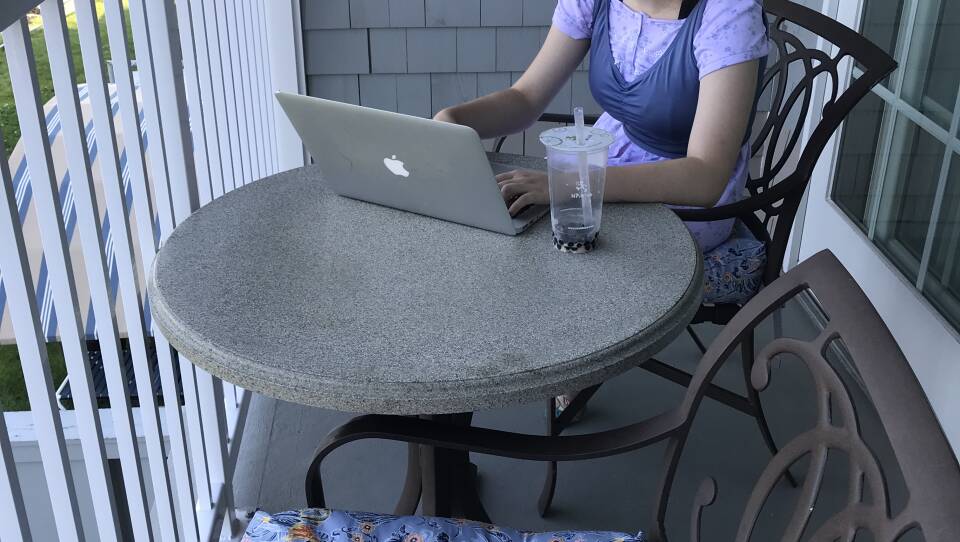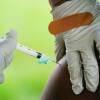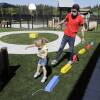When Ella Horvath started feeling tired all the time, it didn't make sense. Growing up in Stratham, New Hampshire, Ella always had plenty of energy, her mother Mary Ann Cappiello recalled.
“So you know at the end of a long school day with other things, [Ella] then would go and dance at six, seven o'clock at night for several hours. So [she] had a real capacity for doing things physically,” said Cappiello.
But these days Ella is frequently tired and takes salt supplements to combat dizziness. She's one of a growing number of children with what’s termed “long COVID” — suffering a range of symptoms that continue more than a month after initial COVID infection. Most children recover quickly from COVID, so part of the challenge for doctors is understanding why some kids, even those who initially had no symptoms, have lingering problems.
Her family believes Ella was infected during a trip to Los Angeles in February of 2020, before the first pandemic lockdown. She had no symptoms, but about a month later started to complain about being tired “all the time.” At first Ella thought it was probably the result of quarantine and the stress of virtual school, but then she began to experience bouts of dizziness.
“It sort of felt like I was crazy. If I tried to express how the symptoms were affecting me, it would either feel like I am exaggerating or just making things up,” Ella said.
She needed a COVID test before a doctor’s appointment, and she and her parents decided to get antibody tests as well. Those antibody tests confirmed Ella had had COVID.
“She was never sick. We never saw her sick. We never got sick. And yet for over a year of her life, when she's at the height of her health on paper and mostly still looks really healthy. She's exhausted and dizzy all the time,” said Cappiello.
Ella is now a patient at Boston Children’s Hospital's Post-COVID clinic, one of many clinics that has sprung up around the country to treat long COVID in children. While patients need to have experienced symptoms for more than a month past confirmed infection, there's still no widely agreed upon definition of exactly what it is and symptoms vary.
“We see kids with physical, social and psychological consequences of post-COVID syndrome and these are functional limitations that present real challenges to patients' wellness and their overall quality of life,” said Alicia Johnston, a pediatric infectious disease specialist and one of the heads of Boston Children's Post-COVID program. “And you know this is real. We don’t know how often it happens, but it absolutely is impacting quality of life for many, many children across the world.”
Johnston said some patients, including Ella, have experienced long COVID symptoms for more than a year.
“Everything from fatigue, brain fog, lots of problems of concentration and memory,” said Johnston of the symptoms, “insomnia, persistent headaches, chest pains, shortness of breath, exercise intolerance, fast heart palpitations, dizziness, lots of muscle and joint aches and lots and lots of alterations in taste and smell.”
And doctors don't know which children who've had COVID infections will go on to develop long COVID.
"The severity of your initial COVID symptoms does not predict whether or not you will be the person to go on to develop long COVID," said Johnston. "We don't have a good understanding at all about the risk factors for long COVID in children and adolescents."
Congress has set aside more than a billion dollars to research long COVID and last week the National Institutes of Health (NIH) announced it is launching a massive nationwide study with the goal of enrolling 30-40,000 people — half of them children. NIH Director Francis Collins called the potential scale of long COVID “daunting” as he referenced Centers for Disease Control estimates.
“There have been 40 million documented infections with COVID-19 just in the United States alone,” Collins said. ”If it's the case that 10-30% of people will have some form of long COVID, we’re talking about millions of people.”
Adrienne Randolph, a senior physician in critical care medicine at Boston Children's Hospital is leading a national studyfocused on why some children are vulnerable to severe COVID-19 symptoms and also why most kids are protected from getting seriously ill.
“It's hard to understand why some children get long COVID, and so that's why we want to try to prevent it. That's all we can do at the moment,” Randolph said.
Prevention, she pointed out, means wearing masks and, for adults and eligible children, getting vaccinated against COVID-19. Meanwhile, cases nationwide have jumped among children and in Massachusetts the most recent two week case count shows confirmed cases up 70% from a month ago.
For now, since there’s no single therapy for long COVID, patients like Ella can only get treated for their individual symptoms. She’s hopeful her long haul with COVID is coming to an end, but there are many unanswered questions.
“There's still so much that hasn't been explained,” said Ella. “How it will affect me moving forward, when it will go away.”
WATCH: Trying to understand long COVID in kids








